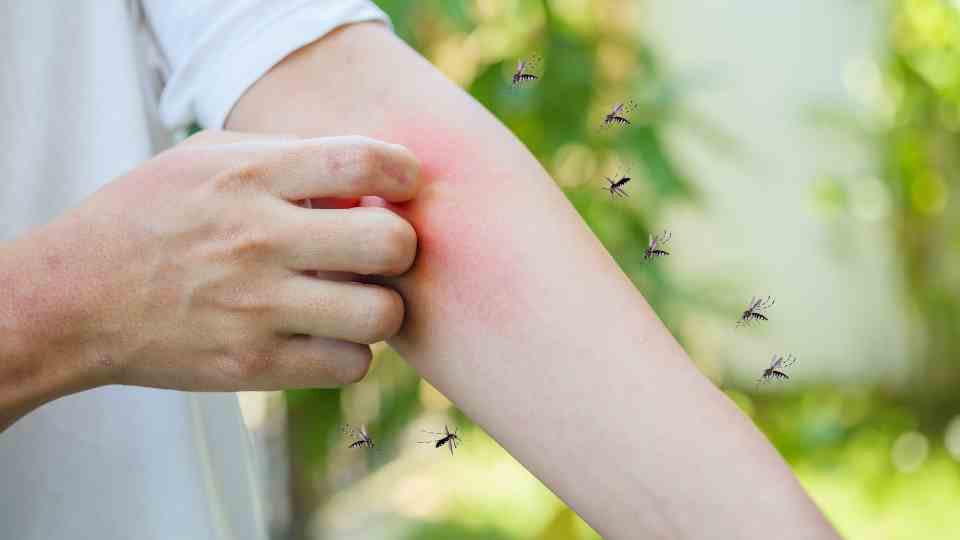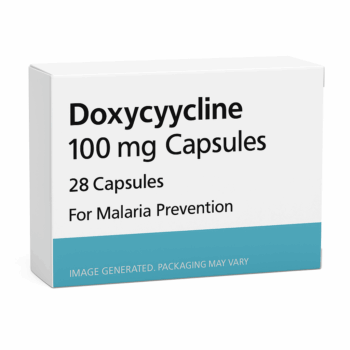Malaria Prevention
Travelling to malaria-risk areas can pose serious health concerns, but with proper precautions, you can enjoy your trip safely. Malaria is a potentially life-threatening disease transmitted by mosquitoes in tropical and subtropical regions. From exploring remote jungles to relaxing in rural villages, travellers to affected areas are at risk of contracting the disease. Malaria tablets, combined with effective bite-prevention measures, provide a simple and highly effective way to protect against malaria, ensuring a worry-free trip.
At TravelHealthUK, we make malaria prevention simple and accessible. Our malaria prevention service provides personalised advice and quick access to the right malaria tablets for your destination. There’s no need to arrange a GP appointment; instead, you can book directly with our clinic team to discuss your travel plans, risks, and the most suitable antimalarial medication for your needs.
Your safety is our priority. During your consultation, our healthcare professionals will assess your itinerary, personal health history, and any potential interactions with other medications to recommend the best malaria tablets for you. Whether you’re visiting regions with drug-resistant malaria strains or embarking on long-term travel, we’ll tailor your prescription to ensure maximum protection.

How Does Malaria Prevention Work?
Malaria tablets work by killing the Plasmodium parasites that cause malaria or by preventing their multiplication in your body. Different types of malaria tablets are used depending on the region you’re visiting, as resistance to some drugs varies by location. The most commonly prescribed tablets include:
- Atovaquone/Proguanil (Malarone): Taken daily, starting one to two days before entering a malaria-risk area and continuing for seven days after leaving.
- Doxycycline: Also taken daily, starting two days before travel and continuing for four weeks after leaving the risk area.
- Mefloquine (Lariam): Taken weekly, starting two to three weeks before travel and continuing for four weeks after leaving the area.
Your healthcare professional will determine the best option for you based on your travel destination, duration of stay, and medical suitability.
While malaria tablets are essential, they work best when combined with other malaria prevention strategies. Avoiding mosquito bites is key, as the disease is transmitted by infected mosquitoes. Use insect repellent containing DEET on exposed skin and wear long-sleeved clothing and long trousers, particularly at night when mosquitoes are most active. Sleeping under a mosquito net treated with insecticide offers additional protection, especially in areas with high malaria transmission.
Staying in accommodations with screened windows or air conditioning can also reduce your risk. If travelling to remote areas, carry a portable insect net and ensure proper application of insecticides. These bite-prevention measures, combined with malaria tablets, provide comprehensive protection, allowing you to enjoy your travels with peace of mind.

FAQs About Malaria Prevention
When should I start preparing for malaria prevention?
You should begin planning malaria prevention measures as soon as your travel itinerary includes a malaria-risk area. This includes consulting a healthcare professional about malaria tablets and other preventive strategies.
Are malaria tablets 100% effective?
No, malaria tablets significantly reduce the risk of malaria but do not provide complete protection. They should always be used alongside other preventive measures, such as avoiding mosquito bites.
Do I need malaria prevention measures for all tropical destinations?
Not all tropical destinations have a malaria risk. A healthcare professional can advise whether your destination requires malaria prevention measures based on up-to-date information.
Are there side effects of malaria tablets?
Side effects are generally mild and depend on the type of medication. Common side effects may include nausea, dizziness, or sensitivity to sunlight. Your healthcare professional will help you choose the most suitable option for you.
What happens if I miss a dose of malaria tablets?
If you miss a dose, take it as soon as you remember. However, never take two doses at once. Missing doses can reduce the effectiveness of the medication, so follow the prescribed schedule carefully.
Order Malaria Prevention Tablets
At TravelHealthUK, we aim to make the process as simple and stress-free as possible. With our convenient online pharmacy, you can order your medication online at a time that suits you. There’s no need to arrange a GP visit, saving you time and effort. Once you’ve had your online consultation, we can provide the necessary prescription and medication to ensure you’re fully prepared for your travels.



